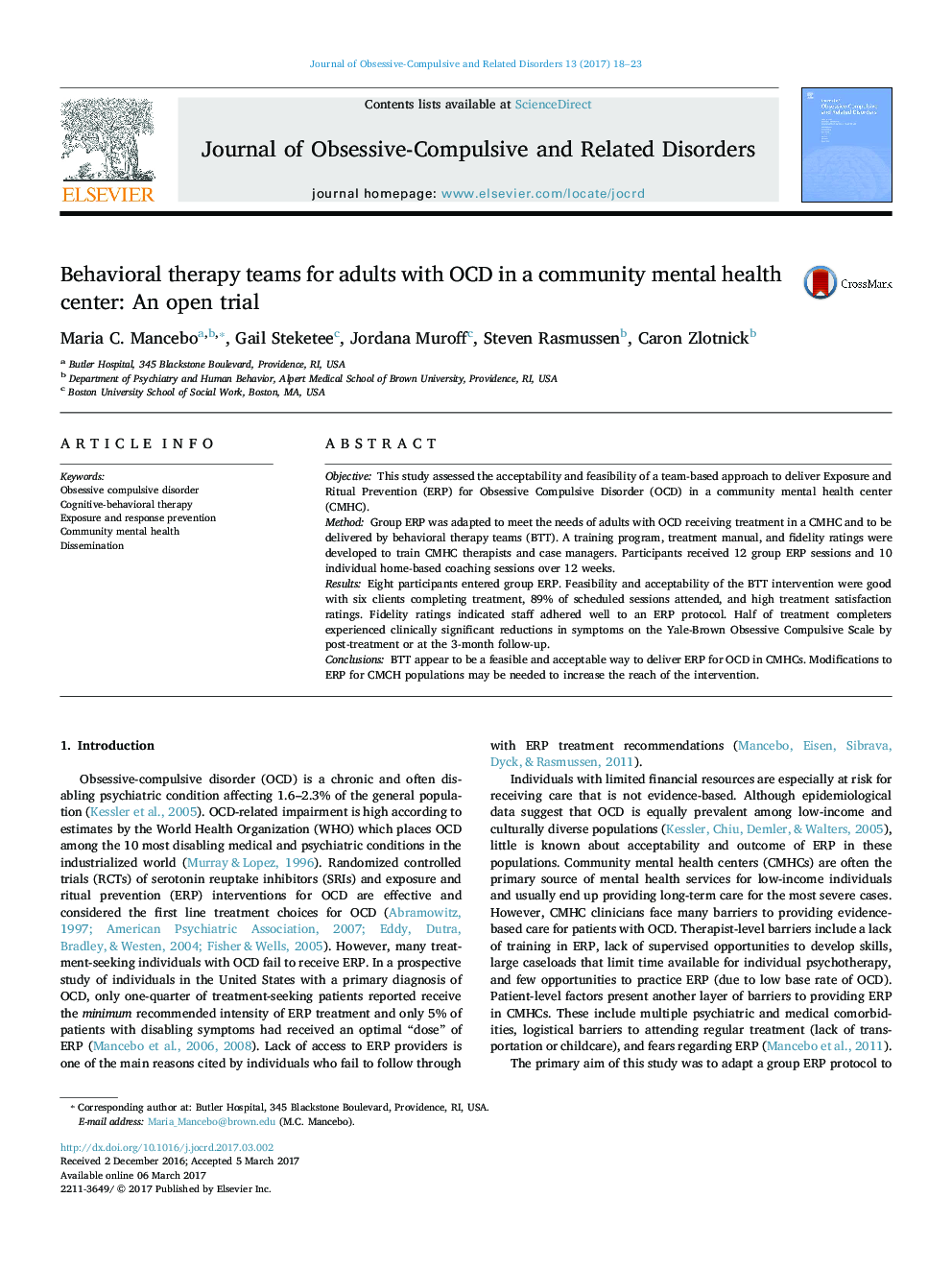| Article ID | Journal | Published Year | Pages | File Type |
|---|---|---|---|---|
| 5039310 | Journal of Obsessive-Compulsive and Related Disorders | 2017 | 6 Pages |
â¢Group ERP for OCD was adapted to fit needs of CMHC patients and setting.â¢Behavioral therapy teams consisting of a therapist and case managers were able to deliver ERP with high fidelity.â¢ERP was feasible and acceptable among clients that entered treatment.â¢Half of treatment completers experienced clinically significant reductions in OCD symptoms with 12 weeks of treatment.
ObjectiveThis study assessed the acceptability and feasibility of a team-based approach to deliver Exposure and Ritual Prevention (ERP) for Obsessive Compulsive Disorder (OCD) in a community mental health center (CMHC).MethodGroup ERP was adapted to meet the needs of adults with OCD receiving treatment in a CMHC and to be delivered by behavioral therapy teams (BTT). A training program, treatment manual, and fidelity ratings were developed to train CMHC therapists and case managers. Participants received 12 group ERP sessions and 10 individual home-based coaching sessions over 12 weeks.ResultsEight participants entered group ERP. Feasibility and acceptability of the BTT intervention were good with six clients completing treatment, 89% of scheduled sessions attended, and high treatment satisfaction ratings. Fidelity ratings indicated staff adhered well to an ERP protocol. Half of treatment completers experienced clinically significant reductions in symptoms on the Yale-Brown Obsessive Compulsive Scale by post-treatment or at the 3-month follow-up.ConclusionsBTT appear to be a feasible and acceptable way to deliver ERP for OCD in CMHCs. Modifications to ERP for CMCH populations may be needed to increase the reach of the intervention.
